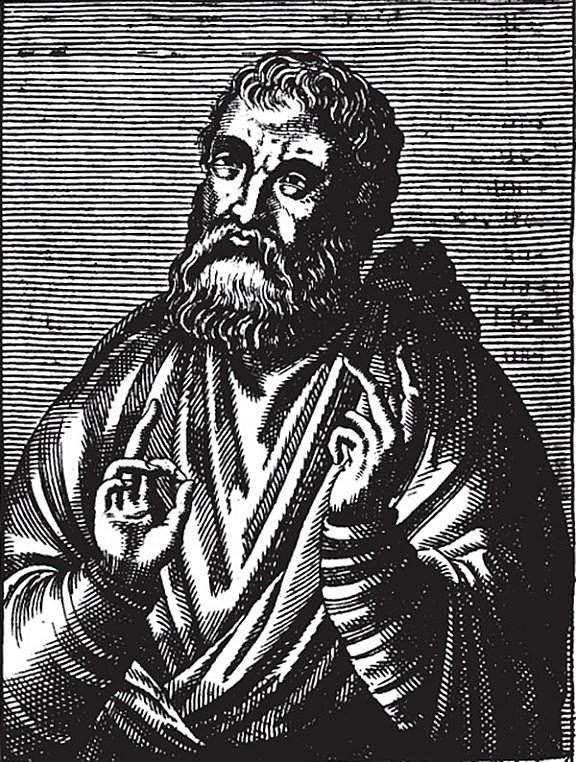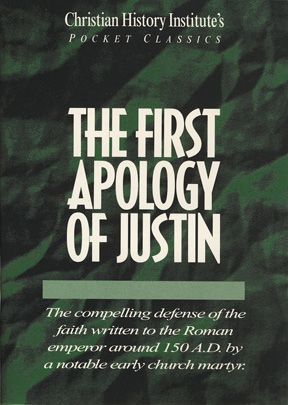Justin Martyr Made a New Theology Based on Greek Philosophy

The philosopher became a Christian apologist and martyr.
FLAVIUS JUSTIN began as a pagan thinker and ended as a Christian apologist and martyr. A Roman, he was born in Samaria around A.D. 100. He was educated in the Greek and Latin classics and studied the philosophies of Aristotle, the Stoics, Pythagoreans, and Platonists. It was Plato’s theories that most strongly captured his imagination because Plato and his mentor Socrates taught about a spiritual world that cannot be seen.
Still, Plato did not satisfy his soul. While walking by the sea lost in thought around 132, Justin met an old man. The old man, who turned out to be a Christian, began a conversation with Justin and showed him weaknesses in Plato’s theories that Justin had never noticed. The old man explained that such errors were inevitable when philosophers tried to arrive at truth apart from God. By contrast, the prophets of Israel, speaking for God, not only revealed moral truth but also were able to prophesy the coming of the Christ.
As Justin listened, he found himself believing. He became a student of the gospel and found its truths could stand up to and surpass the best Greek thought. He donned the robe of a philosopher and lectured on Christian philosophy, teaching first in Asia Minor and then in Rome at the house of Martinus on the Via Tiburtine. Among thinkers he opposed were the heretic Marcion and the Cynic philosopher Crescens. The gist of Justin’s philosophy was that all truth is God’s truth. Any truth found in pagan philosophies was owing to the Word of God, the Logos, Christ, enlightening mankind. He saw Plato’s God as the God of the Bible and believed Socrates was a Christian before Christ, just as Abraham was. He theorized that Greek philosophy derived its truth from the older teachings of Moses and the Old Testament prophets.
Justin’s mature thought found its way into an appeal to the Roman emperor Antoninus Pius on behalf of persecuted Christians and their beliefs. His “apology,” as such writings were called, argued that Christians exceeded the normal expectations of citizenship. They paid their taxes willingly, prayed for the emperor, and did good. If they seemed stubborn it was because they would not allow anyone or anything to usurp Christ’s place. Ultimately tyranny and threats were powerless against them, he said, because death was their door to eternal life. He declared, “You can kill us, but you cannot hurt us.”
The Apology rejected accusations that Christians held cannibalistic rituals and engaged in gross immorality. Justin asserted that, on the contrary, Christ’s teaching was filled with reasonableness and moral power, in strong contrast to the irrational and licentious details of pagan myths. He warned the emperor that even he could not escape the coming judgment of God.
Around 165, a Roman prefect named Rusticus ordered Justin and six of his students to sacrifice to the Roman gods. When they refused, he had them scourged and beheaded. Thus Justin earned the epithet “Martyr.” He is considered the first notable Christian philosopher. In 1882, Pope Leo XIII declared this day, 14 April, as Justin Martyr’s memorial day in the church calendar—his feast day.
—Dan Graves
------- -------- -------
Read Justin for yourself, First Apology of Justin - Pocket Classic






